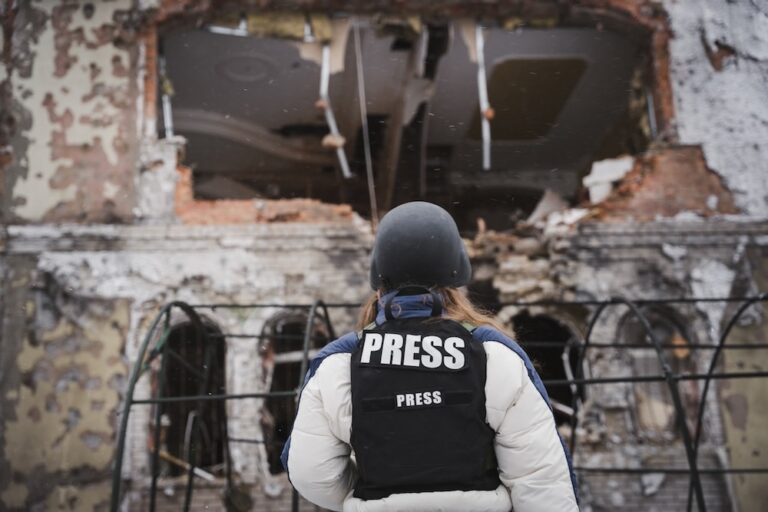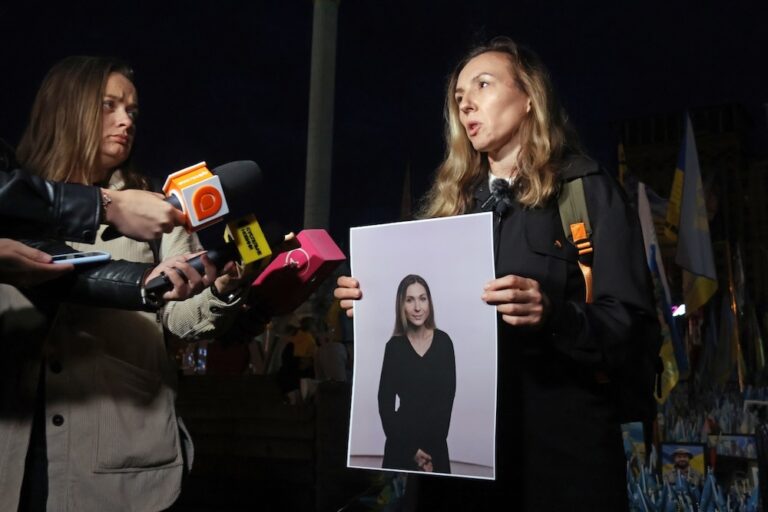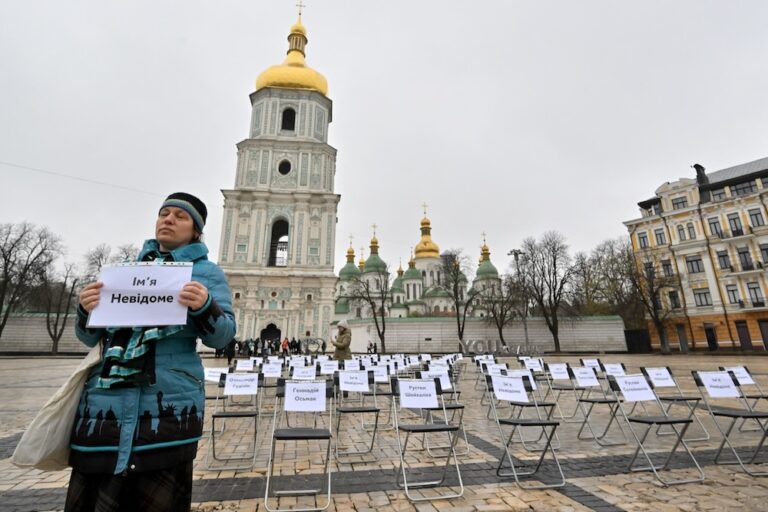(GDF/IFEX) – The following is a 27 July 1999 GDF press release: **Updates IFEX alerts of 9 June, 19 March and 5 March 1999** On 26 July 1999, the broadcasts of four non-governmental Crimean TV companies – Chernomorskaya TV and radio, ITV (Simferopol city), Ekran TV and radio (Jankoy city), and Kerch TV and radio […]
(GDF/IFEX) – The following is a 27 July 1999 GDF press release:
**Updates IFEX alerts of 9 June, 19 March and 5 March 1999**
On 26 July 1999, the broadcasts of four non-governmental Crimean TV
companies – Chernomorskaya TV and radio, ITV (Simferopol city), Ekran TV and
radio (Jankoy city), and Kerch TV and radio (Kerch city) – were stopped. In
a message received several days ago and signed by Anatoly Trushkov, the head
of the State Electrical Communication Inspection for the Autonomous Republic
of Crimea, the motive for the closures was explained as a lack of permits
issued by the Ukrainian Frequency Inspection to use the frequency channels
of the Crimea TV and Radio Broadcasting Center (CTVRBC). Nevertheless, State
TV and Radio Crimea, which also uses the transmitter of the CTVRBC,
continues to broadcast.
Thus, under the pretext of wrongdoing allegedly made by the State TV and
Radio Broadcasting Center, independent TV companies which have broadcasting
licenses by the Ukrainian National Broadcasting Council are factually being
barred from the air. The leadership of the Chernomorskaya TV and Radio
company stated that “hidden political motives of the current situation
around the ChTVR company will become more apparent if one takes into account
the fact that over several months, both local and Kiev officials have been
talking unofficially with the leadership of the ChTVR company as if the only
salvation for the company is to sell its controlling share holdings to ‘the
persons concerned’.”
Over recent months, the STB TV station (Kiev) has been under constant
pressure as well, and is now under threat of ceasing broadcasting. On 27
May, STB was visited by representatives of the Kiev City Sanitary Inspection
(KCSI) and the Ukrainian Frequency Inspection (UFI). Claims by the KCSI
resulted from a letter from seven students who had complained of the
worsening quality of their TV reception and their deteriorating health
conditions due to the operation of the STB station’s satellite transmitter.
The claims of the UFI were connected to the end of the validity of the
license for using radio frequencies. On 28 May, the TV company received a
notice from the head of the State Electrical Communication Inspection for
Kiev and the province, Valentin Kolomiyts, demanding that it “immediately
stop the illegal exploitation of the surface station of satellite
communication within twenty-four hours.” Thus, to stop using the STB-owned
antenna would mean ending the company’s operations entirely.
The company’s leadership stresses that existing legislation does not provide
for sanctions after the expiration of a time-limited broadcasting permit. On
4 May, STB’s leadership submitted an application for a new license to the
Interdepartmental Commission for Frequency Licensing which has yet to be
examined, noting that the existing Ukrainian legislation sets a deadline for
examination of thirty days. On 7 June, the STB received a second order to
cease satellite broadcasting as it may cause “complications in the
operations of the Ministry of Defense.” On 11 June, the UFI officials
declared the beginning of the process of cancelling the STB broadcasting
license. All this happened after the agreement for production and broadcast
of the station’s program Parlamentsky Chas, covering the activities of the
Supreme Rada (Parliament of Ukraine), was signed. The STB leadership
believes that their project of covering the presidential elections, which
included plans to impartially cover all the stages of the presidential race
with all candidates, also played its role.
The Glasnost Defense Foundation has every reason to believe that in this
case, the question is not about the tyranny of bureaucrats but about
purposeful political actions. This is confirmed by both the circumstances of
the above incidents and many other cases of pressure against opposition and
independent media and journalists in Ukraine, according to information at
GDF’s disposal.
On 15 July, the Ukrainian Supreme Rada adopted “the Appeal to the Council of
Europe, the OSCE, international parliamentary organizations, parliaments
and governments of European countries in connection with the troubling
situation in the Ukrainian information environment”. It says in particular:
“Media outlets standing in opposition to the executive power structures or
which are simply non-partisan are being literally strangled. Factual closure
of the newspaper Pravda Ukrainy, contrary to the acting legislation, has
wide repercussions far beyond our country. The newspaper’s editor was
arrested under questionable accusations. Illegal actions were taken against
the newspapers Politika, Dneprovskaya Pravda, Kirovogradska Pravda,
Poltavska Dumka and a number of others. The STB station suffered serious
harassment and broadcasts of a number of programs of other TV and radio
stations which didn’t please the existing Ukrainian executive power were
stopped.”


